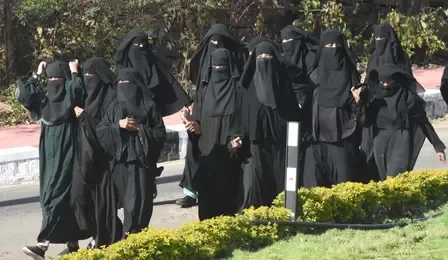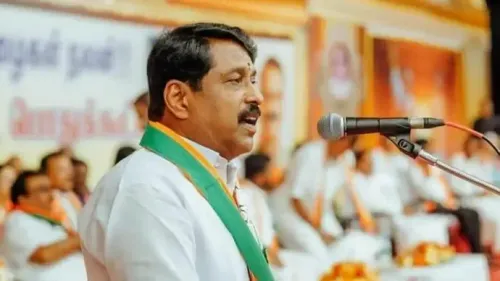How are GST reforms fueling a shopping surge for Diwali and Dhanteras?

Synopsis
Key Takeaways
- GST reforms have led to reduced prices on essentials and electronics.
- Middle class consumers are benefiting from these changes.
- There is a notable increase in festive shopping.
- Automobile sales have seen a record growth.
- Companies are offering attractive deals this festive season.
New Delhi, Oct 14 (NationPress) The latest reforms in the Goods and Services Tax (GST) have provided significant relief to consumers, leading to a sharp decrease in the prices of numerous essential and electronic items. This change has made various goods more accessible to the middle class, resulting in a remarkable increase in festive season shopping throughout the nation.
A resident from Basti district in Uttar Pradesh shared with IANS that the recent GST reductions have led to unexpected drops in prices for various products. The announcement of the GST cut had consumers eagerly awaiting its implementation. Currently, the markets are bustling with shoppers as preparations for Diwali and Dhanteras are in full swing.
Another local noted that the GST adjustments have lowered prices by over 10%, particularly for electronic goods.
In addition to these price drops, companies are launching attractive offers to draw in customers for the festive season, he mentioned.
Last week, the Federation of Automobile Dealers Associations (FADA) reported a record-breaking surge in sales during the Navratri period from September 22 to 30, achieving a 34% year-on-year growth.
Passenger vehicle sales rose by 34.8%, while two-wheeler sales increased by 36% during the same timeframe. Overall, total sales in September grew by 5.22% to 1,827,337 units, compared to 1,736,760 units the previous year.
FADA indicated a significant rise in inquiries and bookings across two-wheeler, passenger, and commercial vehicle categories. With enhanced logistics and transportation, industry experts predict that this could be India's most successful festive retail season, as supply chains are well-prepared to handle the increased consumer demand.
The major reforms to India's Goods and Services Tax (GST) system, termed GST 2.0, came into effect on September 22, 2025. Prime Minister Narendra Modi officially introduced these 'next-generation GST reforms,' aiming to simplify the tax framework, ease compliance, and reduce the tax burden on essential goods.









